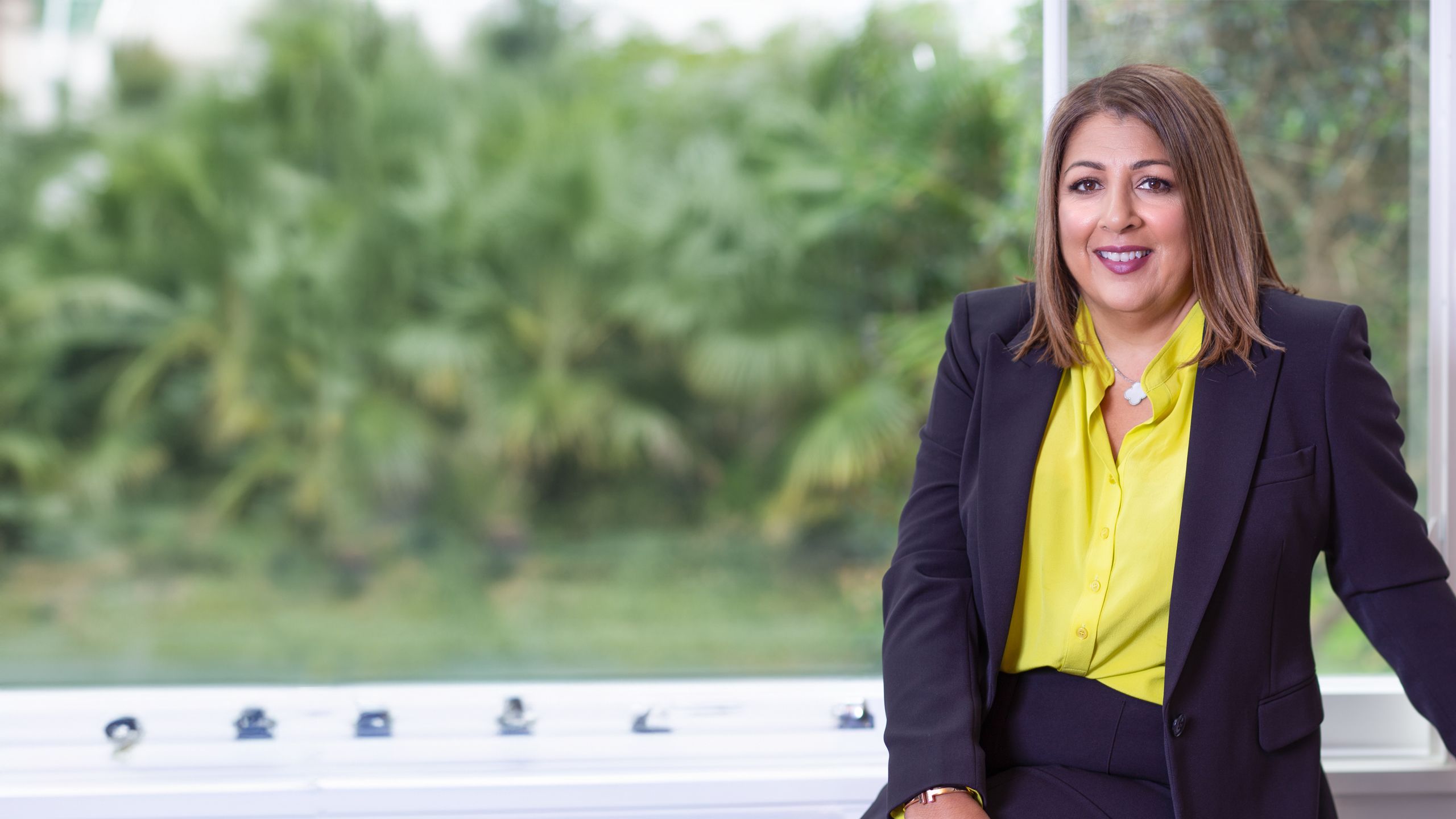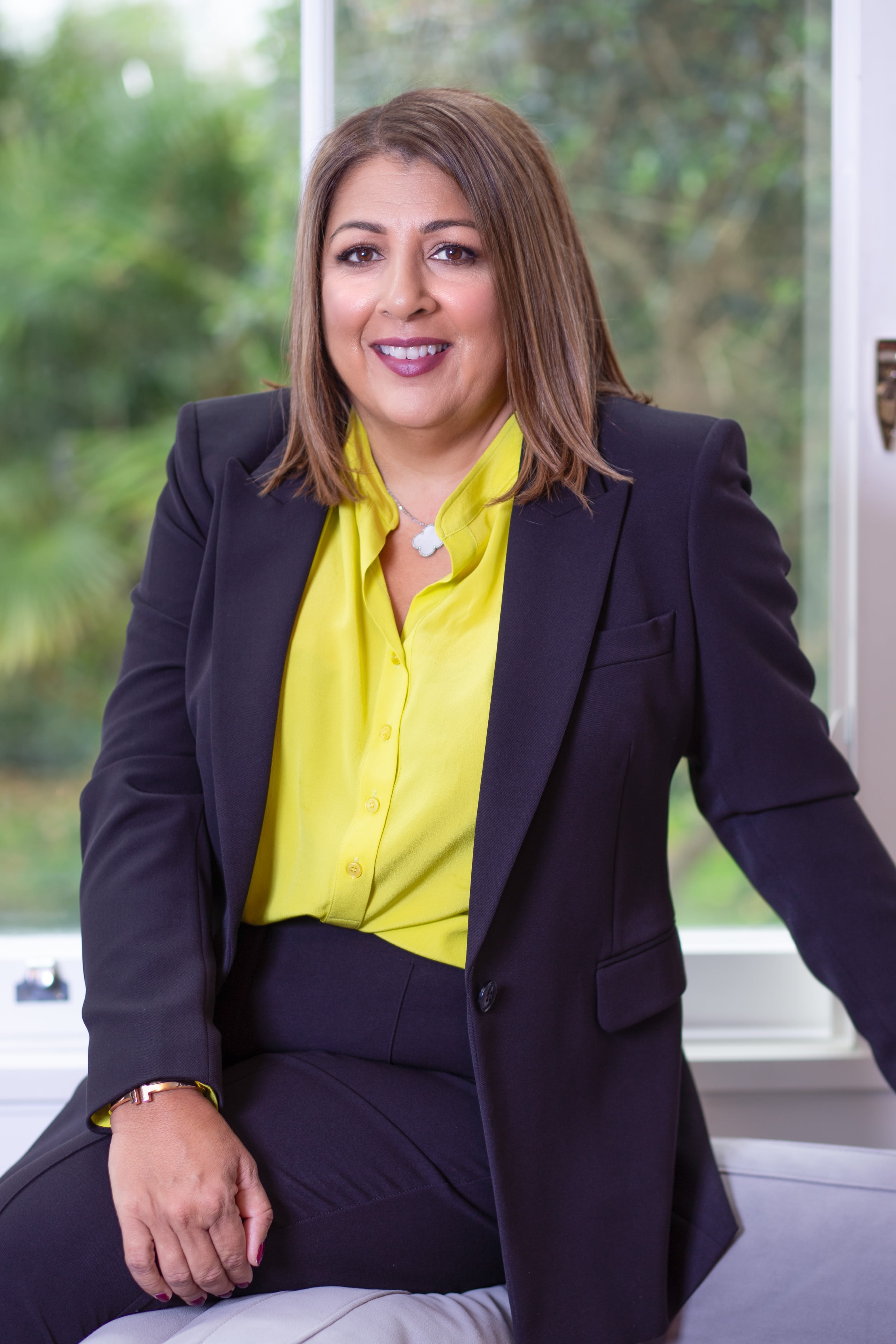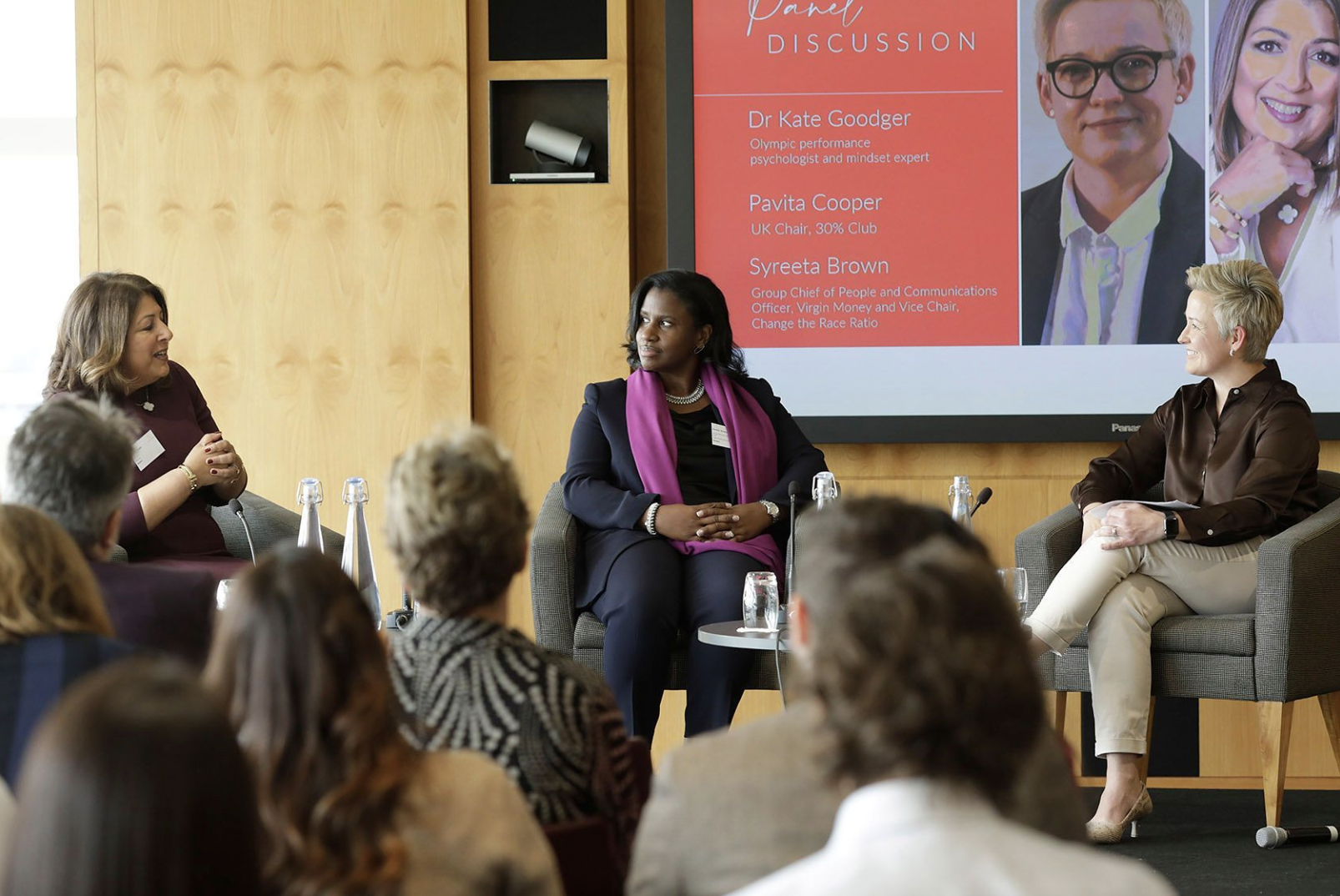The one and only

The one and only

The UK Chair of the 30% Club, Pavita Cooper, details her route from retail to executive leadership, highlighting what steps can be taken to increase representation in the corporate sphere
Words: Lysanne Currie
“Being in the minority is a real theme in my career,” says Pavita Cooper. “Being the only woman in the room and, now, often being the only person of colour in the boardroom.” Cooper is certainly exceptional, in all meanings of the word. And as UK Chair of the 30% Club, a campaign dedicated to increasing female representation at board and C-suite level in the world’s biggest companies, a tireless champion for those whose voices need to be heard.
It’s an attitude instilled during her upbringing. The child of immigrants who came to the UK in the late 1960s, she learned the importance of hard work and perseverance – while doing her A levels, she held down two weekend jobs, including that 1970s staple, Saturday girl in C&A (“I loved it – although I had the most disgusting blue uniform”).
Indeed, the idea of not working was “just alien… I think this very strong work ethic is common in children of immigrants. Economic migrants instil this in their kids, because there’s not a lot of anything, including money.” Plenty of discrimination at the time, though – especially for people from Commonwealth countries. Her mother, a highly qualified teacher, was nevertheless obliged to return to university to requalify, while her father worked in London’s Mount Pleasant sorting office, “with lots of doctors, lawyers, accountants… there was an over-indexing of intelligent Asian men working in blue-collar roles”.
At weekends, the home became something of a local drop-in clinic: Cooper recalls how her mother (who would eventually be awarded an OBE for services to teaching) regularly assisted struggling families with, for example, their immigration forms – and it left a lasting impression. “There was a sense of trying to bring everybody up to the same level, trying to make sure everyone had the same opportunities,” she says.
“That’s why I’m so proud to be leading the 30% Club campaign in the UK. Yes, we want to make sure boards and executive teams are diverse, but the aim goes much deeper. We want to make sure everyone in the workplace has the opportunity to thrive so businesses become the best they can be,” she explains. “We work with the leaders of some of the biggest employers in the country to ensure they’re creating promotion and development opportunities for staff regardless of their gender, race or anything else.”
Pavita has always been commercially minded and her Saturday job quickly turned into a passion for the retail industry. She was particularly inspired by an assistant store manager, who was a female graduate trainee. “I saw her as a role model. She was young and making something of herself – and I also loved her shoes,” she says. “I wanted to be her.” But she didn’t think it was really an option because Cooper’s parents, like many economic immigrants, were hoping their daughter would pursue a career in medicine. “Luckily, my sister ticked that box for them,” she says. “I wasn’t good at sciences, but I was really good at humanities and languages. So, they compromised: ‘Okay, you can do business!’”
Shop talk
Instead of going to Manchester University to study business, however, she applied to numerous management schemes – for Marks and Spencer, Harrods and the Burton group, ending up at the latter, whose stores then included Harvey Nichols and Debenhams. She quickly rose up the ranks, becoming an Assistant Manager at Debenhams, Oxford Street, aged just 20.
Retail is a tough sector, one in which dealing with tricky customers would prove good training for Cooper’s later dealings with difficult chairs or awkward CEOs: “Sometimes the way I broker those conversations is based on those early experiences dealing with customers.” In time, she’d go on to lead HR teams in the airport retail sector, acquiring and bidding for new businesses; aged 29, she was headhunted by Shell: “And that was the point at which things really took off.”
Cooper spent the next few years in a super-smart, turbocharged environment: “Again, I was one of the youngest on my team, and the only woman on a team of 100 men.” She learned a lot about innovation and marketing, before being headhunted again, this time by Barclays, becoming its youngest senior executive. “They asked me to go and lead their global talent leadership agenda, working with the CEO,” she says. “At the time, I didn’t see myself as an expert in the area. But I think what they saw in me is that I’m a real change agent. I really lean into relationships and understanding organisations. And now I see that as my superpower.”
Education
After A levels, opted for a management training programme
1989
Management training at Burtons Group, followed by various HR roles in stores and head office
1994
Moves to British Airports Authority as Head of HR
1998
Joins Shell as Global Head of Organisation Change and Transformation, Retail
2001
Switches to Barclays as Global Director of Talent & Executive Development
2008
Joins Lloyds Banking Group as Global Director of Talent, Leadership & Organisation Effectiveness
2011
Builds portfolio as NED, board adviser and equality campaigner. Past and present roles include Equality & Human Rights Commission, Prince’s Trust, the Old Vic and CMI.
2023
Made UK Chair of 30% Club

Education
After A levels, opted for a management training programme
1989
Management training at Burtons Group, followed by various HR roles in stores and head office
1994
Moves to British Airports Authority as Head of HR
1998
Joins Shell as Global Head of Organisation Change and Transformation, Retail
2001
Switches to Barclays as Global Director of Talent & Executive Development
2008
Joins Lloyds Banking Group as Global Director of Talent, Leadership & Organisation Effectiveness
2011
Builds portfolio as NED, board adviser and equality campaigner. Past and present roles include Equality & Human Rights Commission, Prince’s Trust, the Old Vic and CMI.
2023
Made UK Chair of 30% Club
Needless to say, perhaps, she was also one of very few ethnic minority senior executives working in the City. “Back then, people dressed in pinstripe suits, but I used to dress differently,” she says. “I like to stand out: I think it’s part of what helps people remember me. It gives me the confidence to speak out about things other people don’t want to say. I’ve always been that outsider, and the consequences of that never concern me.”
Force of change
It’s an attitude that serves her well as Chair of the 30% Club, the organisation founded in 2010 by Dame Helena Morrissey. Its initial aim was to lift the make-up of FTSE 100 boards from 12% women, as it was then, to at least 30%. The campaign has since achieved that goal – hitting 30% in 2018 and now exceeding 40%.
But clearly there’s still a long way to go. Women continue to be underrepresented in leadership roles. There are only around 15% women leading those boards and there have never been more than 11 female CEOs in the FTSE 100. “We’re a long way off reaching 30% female CEOs. Change does take time but the speed of it must accelerate,” says Cooper.
Change is nothing if not her watchword. The portfolio non-executive director and board adviser says: “If I’m invited onto boards now, I say, ‘If you don’t want to change anything, I’m not the right person for you.’”
The 30% Club is also about change. It already runs the world’s biggest cross-company mentoring programme with mentees three times more likely to be promoted than non-mentored peers, according to Moving Ahead – the company that executes the mentoring programme. But now, the campaign hopes its new executive accelerator will get more women into the C-suite.
“We’re matching ExCo-1 and ExCo-2 [one and two levels below executive committee] women to board directors with significant executive experience and some board chairs,” says Cooper. “The aim is to help them secure their first exco [executive committee] role by identifying and closing any perceived gaps in their experience and navigating development opportunities. We’re really excited about the potential of this pilot scheme.”
One area Cooper particularly wants to focus on is promoting and developing female CFOs. Historically, she says, many CEOs were previously CFOs – the road from CFO to CEO being practically a “tour of duty”. But what is it that means many women don’t want to take on these roles?
“For a lot of women, CFO doesn’t feel very attractive. It feels more male. I was talking to a colleague yesterday whose friend was about to be appointed to a really big CEO role in the finance world. And she said, ‘I don’t want that. I’ve had to fight my way to get to the top. It’ll just be more of that and worse.’
“So there’s something about the environment [in the financial sector], and it’s on the senior people in those organisations to notice this. CFOs and CEOs should be asking: ‘Where are the women?’ I’d like men to be asking themselves why women don’t want to be a part of this. I want them to take accountability and want to be part of the change.”
Pavita Cooper (left) at the launch of the 30% Club’s executive accelerator programme
Pavita Cooper (left) at the launch of the 30% Club’s executive accelerator programme
“I’ve always been that outsider, and the consequences of that never concern me”
So, what would she suggest to board members looking to make a difference? “Join the 30% Club!” says Cooper. “This is a team sport we all have to think about. A lot of leaders think, ‘Oh, we’ve got a great head of DE&I [equality, diversity and inclusion]’ or ‘My CEO’s all over this, it’s sort of happening, and I’m really supportive.’ That’s not enough. What are you doing? Are you reaching out and talking to women in the organisation, to say, ‘What can I do?’”
And if you’re an executive, there’s even more you can be doing: “Are your shortlists balanced? Are you holding your suppliers and the supply chain to account? What happens around performance calibration? How do you enquire and challenge and use data to illuminate where the opportunity for change lies change? There’s so much to consider,” says Cooper. “But it’s like the climate challenge: we’ve all got to do our bit.”
For more resources read ICAS’ EDI strategy









